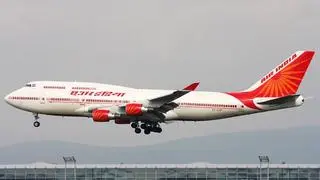The introduction of a fresh National Civil Aviation Policy nearly six months ago was expected to spur more players to enter the sector. But it hasn’t happened so far. In an interview with BusinessLine , Dinesh Keskar, aircraft manufacturer Boeing’s Senior Vice President (Sales) for Asia Pacific and India, says the key to success of the policy lies in regional connectivity. Excerpts:
It has been six months since the National Civil Aviation Policy was introduced and yet no new airline has entered the sector so far...
There are several aspects to the policy. The 0-20 rule which allowed the airlines to quickly scale up their fleet size to start flying international routes hasn’t happened so far. I do not see an incredible haste among airlines to go for the international routes just because it (new policy) has been introduced. But the regional connectivity has a huge potential. It is not going to be easy for regional connectivity to start yielding results immediately. If implemented properly, it will certainly lead to more growth. But when you start connecting these new pairs of cities, they will mature into bigger markets and the infrastructure will also grow. With the fuel prices low, one shouldn’t lose the opportunity to improve regional connectivity. As far as we are concerned, we expect that some of these routes will mature enough for us to deploy B737s there.
Compared with Airbus, Boeing has lagged as far as narrow body aircraft are concerned. Narrow body aircraft has, in fact, been the mainstay of most private airlines in the country...
First of all, let me clarify we do have a narrow body aircraft in 737s. We of course do not compete in the ATR space. But we have sold hundreds of 737s and that has been our mainstay for a long time. Even though IndiGo has about 400 on order, we continue to do well in terms of deliveries. But we see SpiceJet take our aircraft on lease all the time. Jet Airways has ordered for Max and so has SpiceJet and they will start getting them by 2018. Air India Express is also buying our aircraft and we have delivered six in the last six months. They will be looking at Max also. Unlike Airbus, we haven’t had a single cancellation in India so far. IndiGo has about 100 aircraft and they have ordered four times that or even GoAir has placed orders six times their current size. Show me one airline in the West where such a situation exists.
Compared with Airbus, Boeing hasn’t had such a huge success with private sector airlines in India. How does Boeing plan to correct that?
After the private airlines entered the sector in 1993 and till 2001, only Boeing was in operation. The scenario changed after IndiGo came into operation which was followed by Kingfisher Airlines and then Air Deccan. And you know what happened to both of them. We had SpiceJet and they continue to order our aircraft. We continue to deliver those we have sold. That is the underlying thing. Sheer reading numbers in the website doesn’t tell you anything. I will admit IndiGo has done fantastically so far. Only time will tell what happens.
You have actually touched upon a very sensitive issue… about the A380s which hasn’t been a major success. What is your view on this?
I won’t talk about whether it was proper on the part of Airbus to launch an aircraft like this. But let me address it differently. We were party in the early nineties to decide and worked actually with Airbus to figure out whether the world needed a big plane or a fuel efficient smaller airplane. But in the mid-nineties, we concluded that we want to separate. We continued to pursue 787 and they went ahead with A380. The fundamental difference in philosophy was that Airbus thought the world is growing very fast and they need a bigger aircraft to carry passengers from hub to hub. We concentrated on point to point.







Comments
Comments have to be in English, and in full sentences. They cannot be abusive or personal. Please abide by our community guidelines for posting your comments.
We have migrated to a new commenting platform. If you are already a registered user of TheHindu Businessline and logged in, you may continue to engage with our articles. If you do not have an account please register and login to post comments. Users can access their older comments by logging into their accounts on Vuukle.